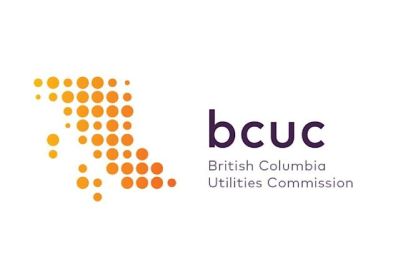BCUC to Approve Electric Vehicle Fast Charging Rates for FortisBC Stations

November 25, 2021
By Order G-341-21, the British Columbia Utilities Commission (BCUC) issued its decision on rates for FortisBC Inc.’s (FortisBC) electric vehicle (EV) public fast charging service at FortisBC owned and operated stations. Rates will be time-based and are expected to be approximately $0.26 per minute for 50 kilowatt stations and $0.54 per minute for 100 kilowatt stations.
The exact rates and their effective dates will be confirmed after FortisBC clarifies their electricity costs with the BCUC within 15 days of the BCUC’s order. FortisBC’s previous rate was $0.30 per minute, which was approved by the BCUC and has been in effect since 2018.
On September 30, 2020, FortisBC submitted an application seeking BCUC approval of its rate design and rates for EV direct current fast charging (DCFC) service. The BCUC conducted an open and transparent process to review the application that included two rounds of information requests, oral and written arguments, and feedback from seven interveners.
In its decision, the BCUC considered whether FortisBC’s rates would be sufficient to recover costs and how they compared to non regulated service providers in the market. The BCUC concluded that FortisBC’s public EV fast charging rates are just, reasonable, and in line with the competitive market to enable the market to operate and grow.
The BCUC determined that a time-based rate (instead of an energy-based rate) is currently the only option for this service, as there are currently no approved Measurement Canada standards to measure how much electricity is consumed at DCFC service stations.
FortisBC is directed to apply for an exemption from the Electricity and Gas Inspection Act to have the option to charge energy-based rates in the future. Given the unique nature of the EV services market, FortisBC was also directed to file a detailed assessment of the these rates for EV fast charging service by no later than December 31, 2022.
For more information about this application, please visit the FortisBC proceeding page.
Background
On December 22, 2017, FortisBC submitted an application to the BCUC for Approval of Rate Design and Rates for Electric Vehicle DCFC Service. On January 12, 2018, by Order G-9-18, the BCUC approved FortisBC’s application for a time-based rate of $9 per half hour (or $0.30 per minute) for electric vehicle charging at DCFC service stations owned by the utility, on an interim basis. FortisBC was also directed to separately track and account for all costs associated with these stations and exclude these costs from its utility rate base until the BCUC directs otherwise.
Before conducting a full review of FortisBC’s application, the BCUC conducted an inquiry into the potential regulatory issues in the EV charging service market. Please click the following links to read the BCUC’s Executive Summaries for Phase One and Phase Two of the Inquiry.
About the BCUC
The BCUC is an independent regulatory body, responsible for regulating British Columbia’s energy utilities, as well as its compulsory automobile insurance rates, and intra-and provincial pipelines rates. The BCUC is also responsible for administering British Columbia’s Fuel Price Transparency Act. It is the BCUC’s role to balance the interests of customers with the interests of the businesses it regulates. The BCUC carries out fair and transparent reviews of matters within its jurisdiction and considers public input where public interest is impacted.









![Guide to the Canadian Electrical Code, Part 1[i], 26th Edition– A Road Map: Section 56](https://electricalindustry.ca/wp-content/uploads/2022/11/Guide-CE-Code-2.png)






